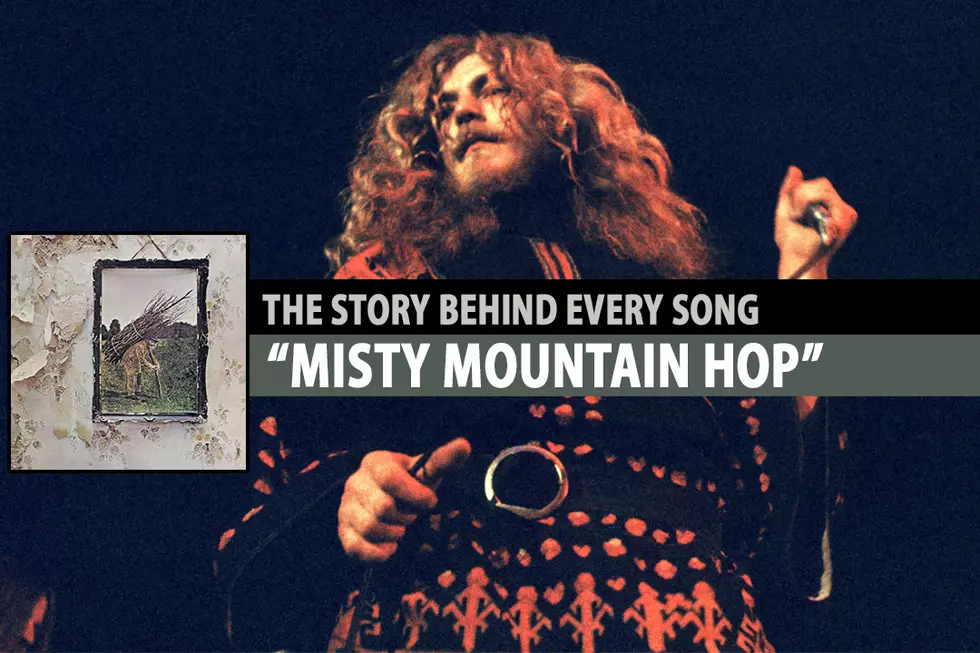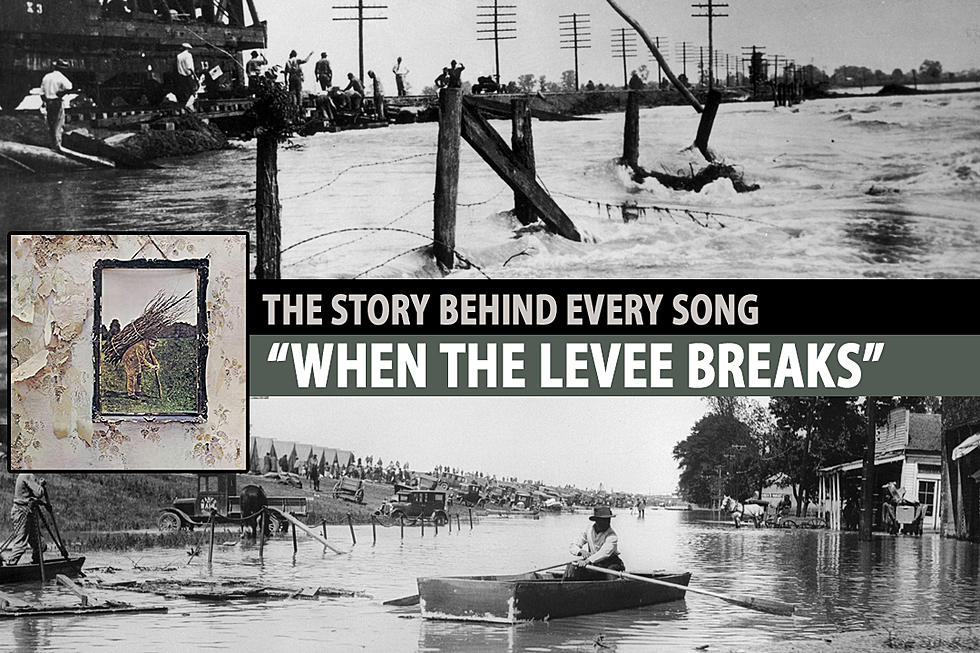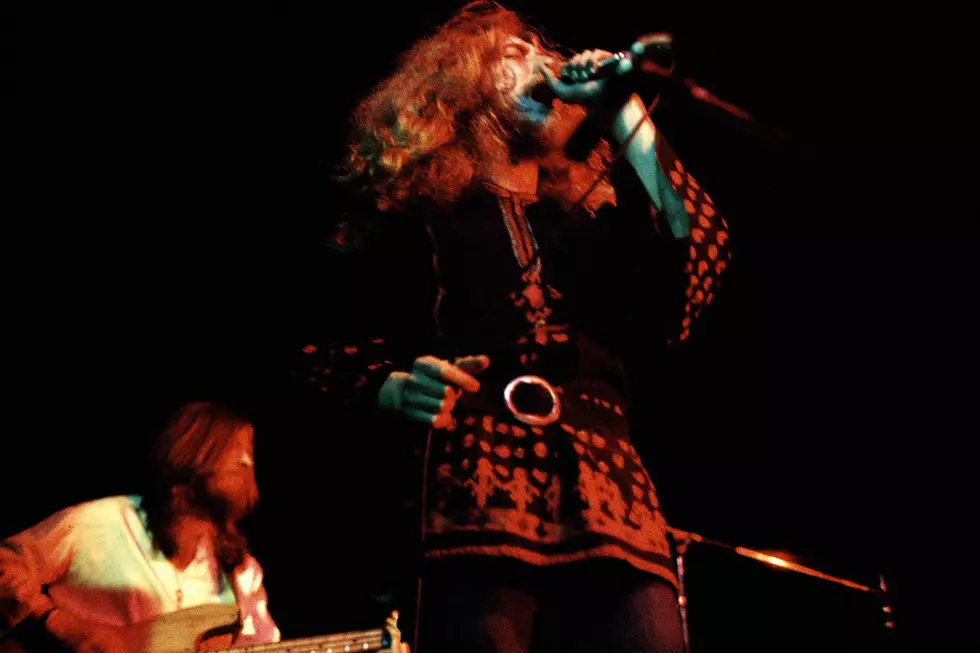
When Led Zeppelin’s ‘Misty Mountain Hop’ Took Hippies to Tolkien
Beyond the sawing riffs and building-rattling stomps, there was always something a little hippie-dippie about Led Zeppelin. One critic memorably described lyrical detours like "Misty Mountain Hop" as "dated flower-child gibberish."
Robert Plant stood his ground, presumably in bell-bottoms.
"The essence of the whole trip was the desire for peace and tranquility, and an idyllic situation," he told Rolling Stone in 1975. "That's all anybody could ever want. So, how could it be 'dated flower-child gibberish'? If it is, then I'll just carry on being a dated flower child."
"Misty Mountain Hop" managed to unapologetically combine all three of these basic elements – the stomps, for sure, and the sawing riff and (most certainly) the hippie-dippie stuff: Plant places himself amid a real-life July 1968 rally in London's Hyde Park where protesters encouraging the legalization of marijuana where dispersed by police.
"It's about a bunch of hippies getting busted, about the problems you can come across when you have a simple walk in the park on a nice sunny afternoon," Plant said in Classic Rock Stories: The Stories Behind the Greatest Songs of All Time. "In England it's understandable, because wherever you go to enjoy yourself, 'Big Brother' is not far behind."
This being Plant, however, there's some Tolkien stuff, too. He encourages the scattering potheads to trade in harsh city life for the bucolic freedoms of the rural Welch countryside – or, maybe, Middle-earth.
The misty mountains, of course, exist both in this world (northern Wales, to be exact) and at the center of The Lord of the Rings. So does this song, and others like "Ramble On" from Led Zeppelin III, "The Battle of Evermore" from elsewhere on IV, and "Over the Hills and Far Away" from Houses of the Holy. (Some very dedicated fans also think the proverbial "Stairway to Heaven" leads to Middle-earth.)
Listen to Led Zeppelin's 'Misty Mountain Hop'
Led Zeppelin set up to record what would become their untitled fourth LP over the hills at faraway Headley Grange in Hampshire, England. John Paul Jones and Jimmy Page ultimately earned co-composing credit with Plant, though how they got to that point remains something of a Tolkien-ish mystery.
Jones later said he "got up before everyone else one morning, and I was playing around on the electric piano. When the others got up, I played it to them, and it went from there." Page, on the other hand, said he wrote the music while everybody else was asleep. "I remember coming up with the opening part of that, and then we would go off," he told the BBC in 1990. "Jonesy put the chords in for the chorus bit."
Everyone agrees, however, that "Misty Mountain Hop" ultimately came together quite quickly, with Andy Johns engineering at the Rolling Stones' mobile studio. The song was then tucked away as the opening song on Side Two of Led Zeppelin IV, and the B-side for its lead single "Black Dog," but certainly not forgotten.
In fact, when Plant mentioned "packing my bags for the Misty Mountains, where the spirits go now," he really meant it. After a period spent roaming, Plant settled again along the border of Wales; he'd lived there as a youth, traveling during the summers to Snowdonia.
"I missed the misty mountains – the wet Welsh climate," Plant told Rolling Stone in 2017. "I like weather people run away from."
Led Zeppelin Albums Ranked
Was Jimmy Page Almost Part of a New Supergroup?
More From 96.7 The Eagle






